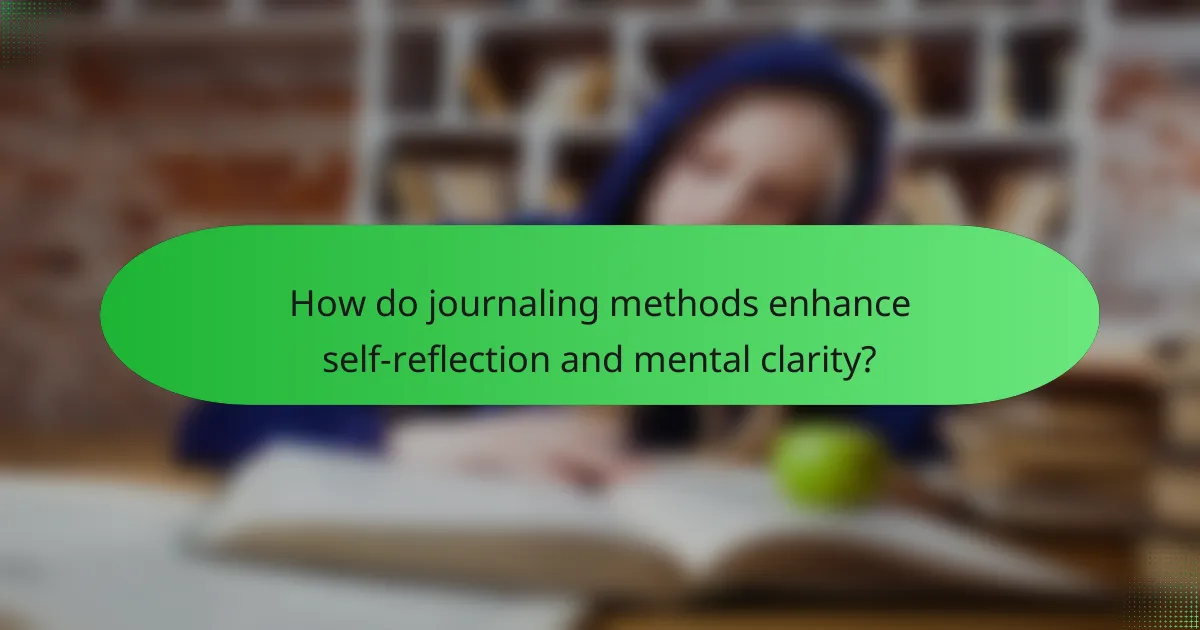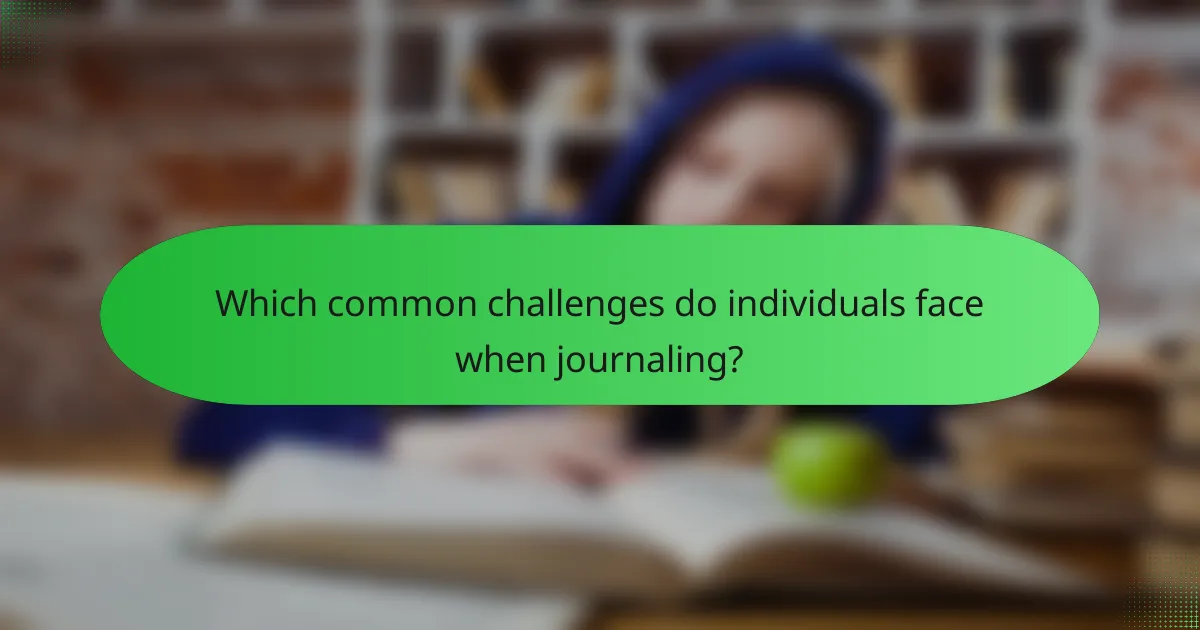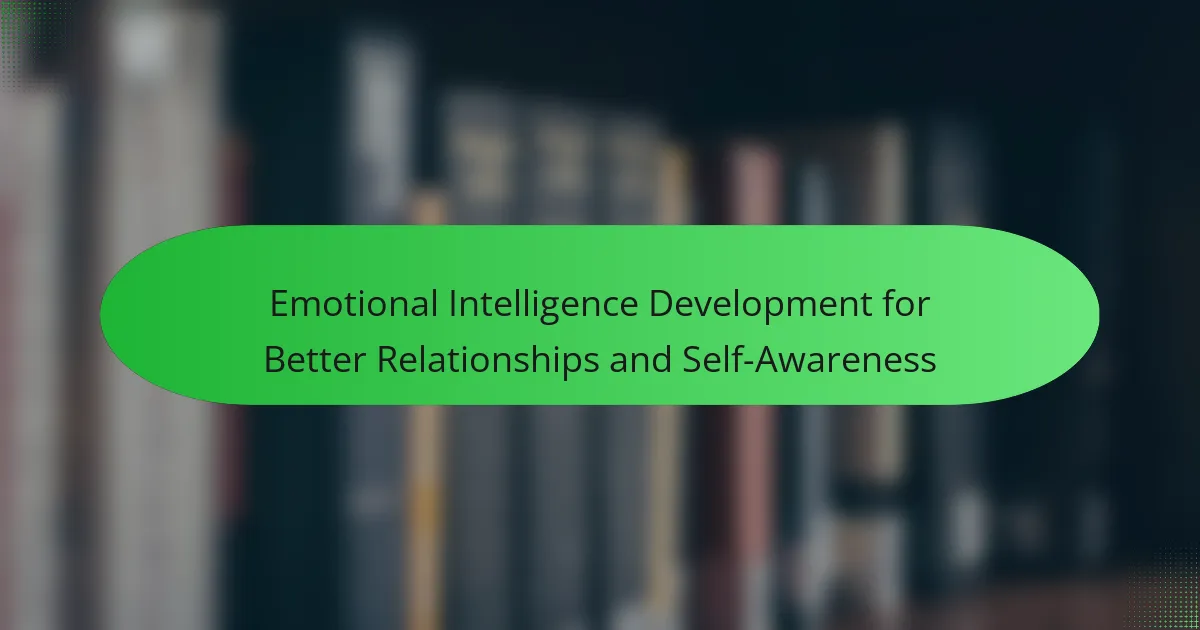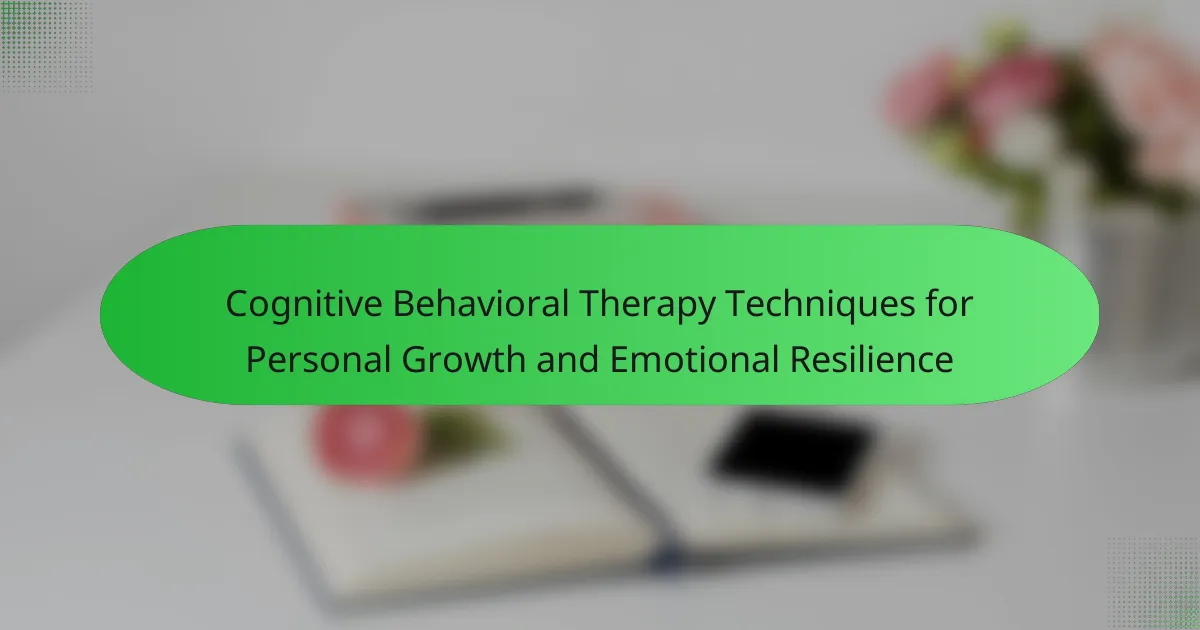Journaling methods enhance self-reflection and mental clarity by providing structured outlets for thoughts and emotions. This article explores effective techniques like free writing, guided prompts, and gratitude journaling. It also examines the impact of cultural perspectives on journaling practices, addresses common challenges, and highlights digital tools that can improve the journaling experience. Implementing these strategies can lead to deeper self-understanding and improved mental well-being.

How do journaling methods enhance self-reflection and mental clarity?
Journaling methods significantly enhance self-reflection and mental clarity by providing structured outlets for thoughts and emotions. These methods encourage individuals to articulate their feelings, leading to deeper self-understanding and insight.
For example, techniques like free writing promote spontaneity, allowing thoughts to flow without judgment. This process can reveal underlying patterns and emotions. Similarly, guided journaling with prompts can focus attention on specific areas of life, fostering clarity and direction.
Additionally, maintaining a gratitude journal can shift focus from negative to positive experiences, improving overall mental well-being. Regular journaling cultivates mindfulness, which enhances emotional regulation and cognitive clarity.
In summary, journaling methods serve as powerful tools for self-reflection and mental clarity, enabling individuals to process their experiences and emotions effectively.
What are the psychological benefits of journaling?
Journaling provides several psychological benefits, including enhanced self-awareness and emotional regulation. It allows individuals to process thoughts and feelings, leading to reduced anxiety and improved mood. Regular journaling can also boost creativity and problem-solving skills by providing a space for reflection. Studies show that expressive writing can strengthen mental resilience and foster a sense of control over one’s life.
How does journaling improve emotional intelligence?
Journaling enhances emotional intelligence by fostering self-awareness and reflection. Through regular writing, individuals process emotions, recognize patterns, and develop empathy. This practice leads to improved emotional regulation and better interpersonal relationships. Journaling also encourages mindfulness, allowing for deeper connections with one’s thoughts and feelings.

Which journaling techniques are most effective for self-reflection?
Effective journaling techniques for self-reflection include free writing, prompts, gratitude journaling, and bullet journaling. Each method enhances mental clarity and self-awareness.
Free writing allows unfiltered expression of thoughts, fostering deeper insight. Prompts guide reflection on specific themes, enhancing focus. Gratitude journaling cultivates positivity by recognizing daily blessings. Bullet journaling combines organization with reflection, promoting mindfulness.
These techniques can be tailored to individual preferences, making them versatile tools for personal growth.
What is the significance of daily journaling?
Daily journaling enhances self-reflection and mental clarity by providing a structured outlet for thoughts and emotions. It fosters mindfulness, allowing individuals to process experiences and identify patterns in their behavior. This practice can lead to increased emotional intelligence and reduced stress levels. Studies show that writing regularly can improve cognitive function and boost creativity. Journaling serves as a unique tool for personal growth, offering insights that may not surface through casual reflection alone.
How can guided journaling prompts facilitate deeper insights?
Guided journaling prompts enhance self-reflection by encouraging structured thought processes. They help individuals explore emotions, clarify goals, and uncover insights. By providing specific questions, these prompts facilitate deeper exploration of personal experiences and beliefs. This structured approach often leads to greater mental clarity and emotional understanding.
What role does bullet journaling play in organization and clarity?
Bullet journaling enhances organization and clarity by providing a structured framework for tracking tasks, goals, and reflections. This method promotes mindfulness, allowing users to gain insights into their thoughts and behaviors.
It serves as a versatile tool, adapting to individual needs by incorporating unique layouts and symbols. As a result, users can tailor their journals to focus on specific areas such as productivity, mental health, or personal growth.
By regularly engaging with a bullet journal, individuals can identify patterns and trends, fostering greater self-awareness. This practice can lead to improved time management and reduced stress levels.
Overall, bullet journaling plays a crucial role in enhancing mental clarity and fostering a sense of control over one’s life.

What unique attributes differentiate various journaling styles?
Different journaling styles are distinguished by their unique attributes, such as purpose, structure, and techniques. Reflective journaling focuses on personal insights, while bullet journaling emphasizes organization. Free writing allows unstructured expression, contrasting with guided journaling that follows prompts. Visual journaling incorporates art, enhancing creativity and emotional processing. Each style serves distinct needs for self-reflection and mental clarity.
How does expressive writing differ from traditional journaling?
Expressive writing focuses on emotional exploration, while traditional journaling emphasizes daily events. Expressive writing encourages deeper self-reflection and emotional release, often leading to therapeutic benefits. Traditional journaling may involve structured entries, prioritizing routine documentation over emotional depth. Each method serves distinct purposes in self-reflection and mental clarity.
What makes art journaling a unique form of self-expression?
Art journaling is a unique form of self-expression because it combines visual art and writing to explore emotions. This method allows individuals to express thoughts creatively, promoting mental clarity. The tactile nature of art materials can enhance the reflective process, providing a sensory experience that traditional journaling lacks. Additionally, art journaling encourages spontaneity and experimentation, making it accessible to all skill levels. This approach can lead to deeper self-discovery and personal insight, fostering a unique connection between the creator and their emotions.

How do cultural perspectives influence journaling practices?
Cultural perspectives significantly shape journaling practices by influencing content, style, and purpose. Different cultures prioritize various aspects of reflection, such as emotional expression or spiritual growth.
For instance, Western cultures may focus on personal development and goal-setting, while Eastern traditions might emphasize mindfulness and self-awareness. This variation leads to unique journaling methods, such as gratitude journals in the West and reflective diaries in the East.
Additionally, cultural norms dictate the privacy of journaling. In some cultures, sharing thoughts may be encouraged, while in others, it remains a private endeavor. This affects how individuals approach their journaling, influencing the depth and openness of their reflections.
Overall, understanding these cultural influences can enhance the effectiveness of journaling as a tool for self-reflection and mental clarity.
What are popular journaling methods in different cultures?
Popular journaling methods vary across cultures, each offering unique approaches to self-reflection and mental clarity.
1. Bullet Journaling: Originating from the United States, this method combines task management with personal reflection, using bullet points for organization.
2. Gratitude Journaling: Common in various cultures, this practice involves listing things one is thankful for, promoting positivity and mindfulness.
3. Dream Journaling: Used in many traditions, this method records dreams to explore subconscious thoughts and emotions, aiding personal insight.
4. Art Journaling: Popular in creative cultures, this approach blends visual art with writing, allowing for expression beyond words.
5. Morning Pages: A practice from the U.S. popularized by Julia Cameron, it involves writing three pages of stream-of-consciousness thoughts each morning to clear the mind.
6. Wabi-Sabi Journaling: Rooted in Japanese philosophy, this method embraces imperfection and transience, encouraging reflection on beauty in the flawed.
How does the perception of journaling vary across generations?
The perception of journaling varies significantly across generations. Younger generations often view journaling as a tool for mental health and self-care, emphasizing digital methods like apps. In contrast, older generations tend to associate journaling with traditional pen-and-paper practices, focusing on reflection and memory.
Younger individuals frequently utilize journaling for emotional expression and stress relief, while older individuals may prioritize it for documenting life events and personal growth. The rise of social media has also influenced younger perspectives, integrating public sharing and community support into their journaling practices.
Generational differences highlight a shift in the purpose and medium of journaling, reflecting broader cultural changes in communication and mental health awareness.

Which common challenges do individuals face when journaling?
Individuals often face challenges like writer’s block, lack of time, and difficulty in expressing thoughts when journaling. These obstacles can hinder self-reflection and mental clarity. Writer’s block can lead to frustration, while time constraints may result in inconsistent journaling habits. Additionally, some individuals struggle to articulate their feelings, which can limit the effectiveness of journaling as a self-reflective practice. Overcoming these challenges often requires establishing a routine and finding personal techniques that foster creativity and openness.
What are the barriers to starting and maintaining a journaling habit?
Common barriers to starting and maintaining a journaling habit include lack of time, fear of judgment, and uncertainty about what to write. Many individuals struggle to prioritize journaling in their daily routines, often viewing it as an additional task. Fear of judgment can inhibit self-expression, making it difficult to be honest on the page. Additionally, some may feel overwhelmed by the blank page, unsure of how to begin or what topics to explore. Overcoming these barriers requires commitment and a willingness to experiment with different journaling methods to find what resonates.
How can one overcome writer’s block in journaling?
To overcome writer’s block in journaling, try structured prompts or free writing. These methods encourage creativity and reduce pressure. Set a timer for five minutes and write continuously without self-editing. This technique often sparks ideas and helps maintain flow. Consider using visual aids like mind maps or doodles to stimulate thoughts. Experiment with different journaling formats, such as lists or letters, to find what resonates. Regular practice builds a habit that can diminish blocks over time.

What tools and platforms can enhance the journaling experience?
Digital tools and platforms can significantly enhance the journaling experience. Popular options include apps like Day One, which offers multimedia integration and cloud syncing, and Journey, known for its user-friendly interface and mood tracking features.
Additionally, platforms like Penzu provide privacy-focused journaling with customizable templates. Physical tools, such as guided journals with prompts, can also facilitate deeper self-reflection. Lastly, community platforms like Reddit or journaling forums can offer support and inspiration.
Which digital journaling apps are favored for self-reflection?
Popular digital journaling apps for self-reflection include Day One, Journey, and Penzu. These apps offer features that enhance mental clarity through structured entries and prompts.
Day One provides a clean interface with multimedia support, allowing users to incorporate photos and audio. Journey emphasizes mindfulness with guided prompts and mood tracking. Penzu focuses on privacy and offers customizable templates for reflections. Each app supports various devices, ensuring accessibility for users.
How do physical journals compare to digital formats in effectiveness?
Physical journals often promote deeper engagement and reflection compared to digital formats. The tactile experience of writing can enhance memory retention and emotional connection. Digital formats, however, offer convenience and accessibility, allowing for easy organization and searchability.
Physical journals encourage mindfulness through the act of writing, while digital formats can distract with notifications and multitasking. A study found that handwriting leads to better retention of information than typing, emphasizing the unique attribute of physical journaling.
In terms of flexibility, digital journals allow for multimedia integration, such as images and links, which can enrich the journaling experience. However, the rare attribute of physical journals is their ability to provide a break from screens, promoting mental clarity.
Ultimately, the effectiveness of each method depends on personal preference and journaling goals.

What practical tips can improve journaling outcomes?
To improve journaling outcomes, implement structured techniques and consistent practices. Start with setting specific goals for your journaling sessions, such as reflecting on daily experiences or expressing gratitude.
Incorporate prompts to stimulate thought, ensuring deeper self-reflection. Use a dedicated journaling time to establish a routine, enhancing mental clarity. Experiment with various formats, including bullet points or free writing, to maintain engagement.
Consider reviewing past entries to track progress and identify patterns, reinforcing personal growth. Lastly, create a comfortable writing environment to foster creativity and focus.
What best practices should be followed for effective journaling?
Effective journaling requires consistency, clarity, and intention. Establish a regular schedule to write, ensuring it becomes a habit. Use prompts to guide your thoughts and maintain focus on specific themes. Reflect on your entries to identify patterns and insights, enhancing self-awareness. Incorporate various formats, such as bullet points or sketches, to diversify expression.
What common mistakes should be avoided in journaling?
To enhance journaling for self-reflection and mental clarity, avoid common mistakes. These include lacking consistency, focusing too much on perfection, neglecting emotional expression, and failing to review past entries. Each mistake can hinder the benefits of journaling and limit personal growth.



